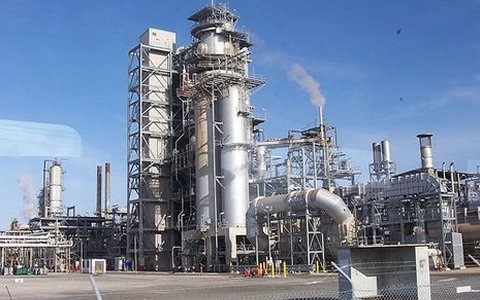The Tema Oil Refinery (TOR) is now burdened with a staggering US $517 million in debt as of December 2024, despite ongoing efforts to service the debt, primarily through the TOR Debt Recovery Levy
TOR’s debt stems from three main drivers.
First are longstanding trade and legacy obligations, unpaid crude shipments and lingering supplier invoices that built up across successive administrations.
Second, Ghana’s IMF-backed fiscal reforms reclassified earlier Ministry of Finance grants to TOR as loans, artificially inflating the refinery’s liabilities.
Finally, because TOR operated without adequate commodity-price hedging, it remained fully exposed to oil-market volatility, which deepened its financial losses and pushed overall debt even higher.
Tema Oil Refinery (TOR) has remained largely inactive for several years, with the Residue Fluid Catalytic Cracker (RFCC) offline since 2019 and the Crude Distillation Unit (CDU) dormant since 2021.
Compounding the operational lull is a six-year audit backlog, which management now aims to clear by July 2025 through full external audits.
Acting Managing Director Edmund Kombat has confirmed that targeted maintenance is underway on critical infrastructure, with a full restart of operations set for October 2025.
Ghana is actively working to verify and renegotiate portions of TOR’s $517 million debt, with support from the Energy Sector Levy to ease the financial burden.
The refinery is also appealing for sustained government backing to complete critical rehabilitation works.
Given that key infrastructure remains salvageable, TOR is preparing for a phased operational revival, starting with strategic maintenance and reactivation of its Crude Distillation Unit (CDU) and Residue Fluid Catalytic Cracker (RFCC).
Recommissioning the Tema Oil Refinery (TOR) is critical for Ghana’s energy independence, potentially cutting reliance on imported petroleum products and enhancing national fuel security.
However, TOR’s large debt burden strains public finances, especially under current IMF-backed fiscal reforms.
Successfully reviving TOR could also revitalize the petroleum downstream industry, safeguard jobs, and help stabilize supply and pricing across the energy value chain.
Keep an eye on progress with the full external audits and debt verification processes.
Watch for official confirmation regarding the planned October 2025 restart of the Crude Distillation Unit (CDU) and Residual Fluid Catalytic Cracker (RFCC).
Also track the results of financial restructuring efforts, including debt renegotiation terms and any adjustments to existing liabilities.
Source: Myxyzonline.com





